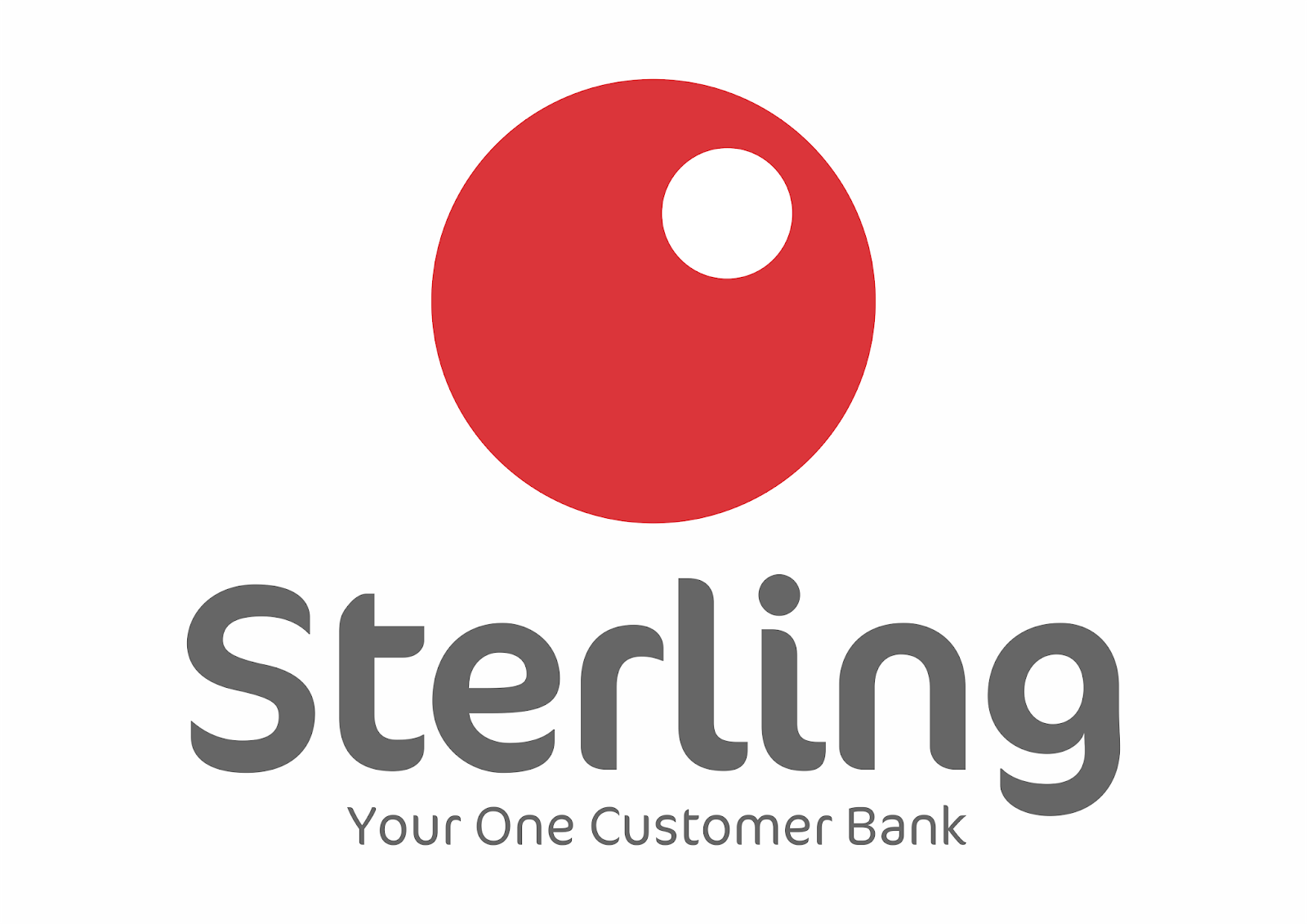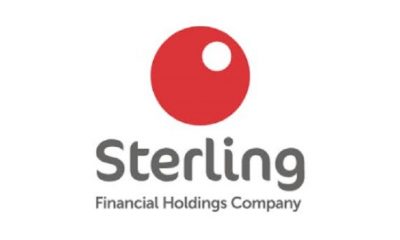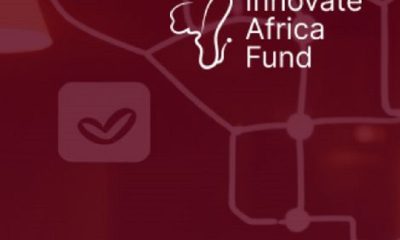Banking
Moody’s Sees Vulnerabilities in This Tier Two Bank’s Asset Quality

**Says GTBank, Zenith Bank Strong to Withstand Shocks
By Modupe Gbadeyanka
Moody’s Investors Service has announced the downward review of the outlook of Sterling Bank Plc to negative from stable following the negative outlook on Nigeria’s government issuer rating.
In a statement issued this month, the rating agency said the lowering of Nigeria’s rating affects the bank’s credit profile as well as resulting in a lower ability to support the b3 BCA, which it said reflects Sterling Bank’s vulnerabilities in asset quality because of high single-name and sector concentration risks.
According to Moody’s, the lender has a large exposure to government debt securities and loans at 275 percent of its tangible common equity as of June 2019, noting that the company will likely be more exposed to negative pressure on its revenue generation capacity and its asset risk than its top-tier local peers due to its relatively small size and client base.
It was further stated that the b3 BCA shows bank’s modest capital levels, especially in light of high asset risks and high foreign-currency loans, stressing that these challenges are balanced against its deposit-based funding profile and stable local-currency liquidity, stating that the “local currency deposit rating is B2 while the local currency national scale rating is A2.ng.”
Also, commenting on other banks, Moody’s said Union Bank of Nigeria, FCMB and Fidelity Bank will likely be more exposed to negative pressure on their revenue generation capacity and asset quality than their top-tier local peers due to its relatively small size and client base.
For Union Bank, it said the b3 BCA reflects its high asset risks and low coverage of NPLs by provisions, which increases the risk of capital erosion in case of loan losses.
It further said this shows weak efficiency and moderate profitability; and still-tight, although improving, foreign-currency funding position, saying these challenges are moderated by the company’s stable deposit-based funding profile, particularly in local currency.
On the part of FCMB, it was stated that the b3 BCA reflects its elevated credit risks stemming from high single-name and sector concentrations; and relatively modest profitability levels compared with those of its top-tier local peers, noting that these challenges are balanced against its robust levels of tangible common equity compared with that of its global peers, stable deposit-based funding structure, and robust local-currency liquidity buffers.
For Fidelity Bank, the rating firm said the b3 BCA shows the lender’s relatively tight funding conditions, as reflected by its high, although improving, loan-to-customer deposit ratio; and high proportion of foreign-currency loans.
It said these challenges are mitigated by the lender’s relatively high provision coverage of NPLs; and solid capital buffers with a tangible common equity-to-risk-weighted asset that is comparable to global peers, although the bank’s capital buffer against the regulatory requirement is small.
But for Guaranty Trust Bank, Moody’s said b2 BCA reflects its resilient earnings generation capacity and robust capital buffers; high liquidity buffers and its predominantly deposit funded balance sheet; and robust franchise, which allows the bank to earn relatively higher margins and relatively low credit costs.
Also, it said Zenith Bank’s BCA of b2 reflects its resilient earnings generating capacity and robust capital buffers, which together provide a buffer to withstand asset-quality deterioration; high liquidity buffers and a predominantly deposit-funded balance sheet; and robust franchise, which allows it to attract inexpensive deposits, relative to other Nigerian banks, adding that “These strengths are moderated by the bank’s high proportion of more confidence-sensitive corporate deposits versus retail deposit.”
For UBA, it stated that the b2 BCA shows moderate asset risk profile, supported by its relatively more diversified loan book than that of its local peers; resilient profitability, which supports its capital buffers; and predominantly deposit-funded balance sheet, which is supported by a solid pan-African franchise, and strong local-currency liquidity buffers.
“These strengths are counterbalanced by UBA’s rising, although still moderate, dependence on confidence-sensitive funding,” the statement from Moody’s said.
Commenting on the b3 BCA of First Bank, the rating agency said it reflects the lender’s still-high stock of NPLs, although reducing, and moderate capital buffers, emphasising that these challenges are moderated by the bank’s resilient pre-provision profitability and stable funding profile, which is supported by a large stock of liquid assets.
Banking
Public Offer: Sterling Holdco Allots 13.812 billion Shares to 18,276 Shareholders

By Aduragbemi Omiyale
Sterling Financial Holdings Company Plc has allotted shares from its public offer of 2025 to investors with valid applications.
The allotment follows the earlier receipt of final approval from the Central Bank of Nigeria (CBN) and the recent clearance by the Securities and Exchange Commission (SEC).
In September 2025, the financial institution offered for sale about 12,581,000,000 ordinary shares of 50 kobo each at N7.00 per share in public offer.
However, the exercise received wide participation from the investing public, with the company getting 18,280 applications for 16,839,524,401 ordinary shares valued at approximately N117.88 billion.
Following a thorough verification process, valid applications were received from 18,276 shareholders for a total of 13,812,239,000 ordinary shares, representing a subscription level of 109.79 per cent and reflecting sustained confidence in Sterling Holdco’s strategic direction, governance, and long-term growth prospects.
The firm approached the capital market for additional funds for the recapitalisation of its two flagship subsidiaries, Sterling Bank and The Alternative Bank.
The capital injection will support the commencement of full operations and contribute to the group’s revenue diversification objectives.
In line with the guidelines set out in the offer prospectus, Sterling Holdco confirmed that all valid applications will be allotted in full. Every investor who complied with the terms of the offer will receive all the shares for which they applied.
A very small number of applications were not processed or were partially rejected due to non-compliance with the offer terms, including duplicate payments and failure to meet the minimum subscription requirement of 1,000 units or its multiples, as stipulated in the offer documents.
The group ensures a seamless post-offer process, with refunds for excess or rejected applications, along with applicable interest, to be remitted via Real Time Gross Settlement or NIBSS Electronic Funds Transfer directly to the bank accounts detailed in the application forms.
Simultaneously, the electronic allotment of shares has be credited to successful shareholders’ accounts with the Central Securities Clearing System (CSCS) on February 17, and for applicants who do not currently have CSCS accounts, their allotted shares will be temporarily held in a registrar-managed pool account pending the submission of their completed account opening documentation to Pace Registrars Limited, after which the shares will be transferred to their personal CSCS accounts.
Banking
CBN Governor Seeks Coordinated Digital Payment Reforms

By Modupe Gbadeyanka
To drive inclusive growth, strengthen financial stability, and deepen global financial integration across developing economies, there must be coordinated reforms in digital cross-border payments.
This was the submission of the Governor of the Central Bank of Nigeria (CBN), Mr Olayemi Cardoso, at the G‑24 Technical Group Meetings in Abuja on Thursday, February 19, 2026.
According to him, high remittance costs, settlement delays, fragmented systems, and heavy compliance burdens still limit the participation of households and Micro, Small and Medium Enterprises (MSMEs) in global trade.
The central banker emphasised that efficient payment systems are essential for economic inclusion, highlighting that global remittance corridors still incur average costs above 6 per cent, with settlement delays of several days, excluding millions from modern economic activity.
Mr Cardoso cautioned that while digital payments present significant opportunities, they also carry risks such as currency substitution, weakened monetary transmission, increased FX volatility, capital-flow pressures, and regulatory fragmentation.
The G-24 TGM 2026, themed Mobilising finance for sustainable, inclusive, and job-rich transformation, convened global financial stakeholders to advance the modernisation of finance in support of emerging and developing economies.
The CBN chief reaffirmed Nigeria’s commitment to working with G-24 members, the IMF, the World Bank Group, and other partners to build a more inclusive, resilient, and development-oriented global financial architecture.
“We have strengthened our AML/CFT frameworks in line with FATF guidelines, requiring strict dual-screening of cross-border transactions to mitigate risks.
“To deepen regional integration, the CBN introduced simplified KYC/AML requirements for low-value cross-border transactions to encourage broader participation in PAPSS, easing processes for Nigerian SMEs and enabling faster intra-African trade payments.
“We have also embraced fintech innovation through our Regulatory Sandbox, allowing payment-focused fintechs to test secure, instant cross-border solutions under close CBN supervision,” he disclosed.

Banking
Unity Bank, Providus Bank Merger Awaits Final Court Approval

By Modupe Gbadeyanka
The merger and business combination between Unity Bank Plc and Providus Bank Limited remains firmly on course, a statement from one of the parties disclosed.
According to Unity Bank, there is no iota of truth in reports in certain sections of the media suggesting that the merger process had stalled, as the transaction remains firmly on track.
It was disclosed that the necessary regulatory steps have been completed, but only a few other steps to finalise the transaction, especially the final court sanction.
There had been speculations that both lenders may not meet the new minimum capital requirement of the Central Bank of Nigeria (CBN) before the March 31, 2026, deadline.
However, it was noted that the combined capital base of Unity Bank and Providus Bank exceeds N200 billion, which is the minimum requirement to retain a national banking licence under the CBN’s recapitalisation framework.
When completed, the Unity-Providus merger is expected to deliver a stronger, more competitive, and customer-centric financial institution — one with the scale, innovation, and reach to redefine the retail and SME banking landscape in Nigeria.
“The merger with Providus Bank significantly enhances our capital base, operational capacity, and strategic positioning.
“We are confident that the combined institution will be better equipped to support economic growth and deliver innovative financial solutions across Nigeria,” the chief executive of Unity Bank, Mr Ebenezer Kolawole, stated.
Recall that a few months ago, shareholders authorised the merger between the two entities at Court-Ordered Meetings. They also adopted the scheme of merger at their respective Extraordinary General Meetings (EGMs) in September 2025,
The central bank also backed the merger, with a pivotal financial accommodation to support the transaction. The merger also received a further boost with a “no objection” nod from the Securities and Exchange Commission (SEC).
The regulatory approvals form part of broader efforts to strengthen the resilience of Nigeria’s banking system, reinforce capital adequacy across the sector, and mitigate potential systemic risks.
The development positions the combined entity among the 21 banks that have satisfied the apex bank’s new capital threshold for national banking operations.
-

 Feature/OPED6 years ago
Feature/OPED6 years agoDavos was Different this year
-
Travel/Tourism10 years ago
Lagos Seals Western Lodge Hotel In Ikorodu
-

 Showbiz3 years ago
Showbiz3 years agoEstranged Lover Releases Videos of Empress Njamah Bathing
-

 Banking8 years ago
Banking8 years agoSort Codes of GTBank Branches in Nigeria
-

 Economy3 years ago
Economy3 years agoSubsidy Removal: CNG at N130 Per Litre Cheaper Than Petrol—IPMAN
-

 Banking3 years ago
Banking3 years agoSort Codes of UBA Branches in Nigeria
-

 Banking3 years ago
Banking3 years agoFirst Bank Announces Planned Downtime
-

 Sports3 years ago
Sports3 years agoHighest Paid Nigerian Footballer – How Much Do Nigerian Footballers Earn



















